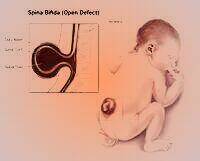Author Interviews, Depression, Endocrinology, Nature / 27.08.2023
USC Study Finds Strong Correlation Between Estrogen-Reactive Hormones and Depressive States
MedicalResearch.com Interview with:
Huizhong Whit Tao, PhD
Professor of Physiology & Neuroscience
Zilkha Neurogenetic Institute
Department of Physiology & Neurosience
Keck School of Medicine
University of Southern California
MedicalResearch.com: What is the background for this study?
Response: Previously, we published a study in which we found that a group of neurons, namely glutamatergic neurons, in the medial preoptic area (MPOA) of the hypothalamus mediate stress-induced anxiety states. This result inspired us to explore whether the MPOA can play a more general role in mood regulation. Fluctuations in the productive hormones secreted by women’s ovaries are known to cause mood swings.
In some cases, rapid changes in the secretion of ovarian hormones can cause depressive-like symptoms. Key examples are postpartum and peri-menopausal depression. In this study, we intended to test whether the MPOA can also play a part in depressive states that are linked to fluctuations in ovarian hormones.
(more…)





















 MedicalResearch.com: What is the background for this study?
Response: I became interested in dog's sense of smell several years ago while doing therapy dog demonstrations at the California Science Center in Los Angeles during a special traveling exhibit "Dogs! A Science Tail." (Now at the Orlando Science Center). I did a lot of research on this topic and taught children about it through the Los Angeles Public Library using my Great Pyrenees therapy dogs. Then, COVID broke out and I expanded my research into any work being done to possibly utilize scent dogs for screening and testing for COVID. I found only a few such studies. However, I fortuitously met Heather Junqueira of BioScent, Inc. (in Florida) online and she was beginning to successfully teach her beagles to detect COVID-related odors. She agreed to co-author a peer-reviewed review paper with me. That led to our first paper -
Dickey, T, Junqueira, H. Toward the use of medical scent dogs for COVID-19 screening. J Osteopath Med 2021;1(2): 141-148.
MedicalResearch.com: What is the background for this study?
Response: I became interested in dog's sense of smell several years ago while doing therapy dog demonstrations at the California Science Center in Los Angeles during a special traveling exhibit "Dogs! A Science Tail." (Now at the Orlando Science Center). I did a lot of research on this topic and taught children about it through the Los Angeles Public Library using my Great Pyrenees therapy dogs. Then, COVID broke out and I expanded my research into any work being done to possibly utilize scent dogs for screening and testing for COVID. I found only a few such studies. However, I fortuitously met Heather Junqueira of BioScent, Inc. (in Florida) online and she was beginning to successfully teach her beagles to detect COVID-related odors. She agreed to co-author a peer-reviewed review paper with me. That led to our first paper -
Dickey, T, Junqueira, H. Toward the use of medical scent dogs for COVID-19 screening. J Osteopath Med 2021;1(2): 141-148. 









